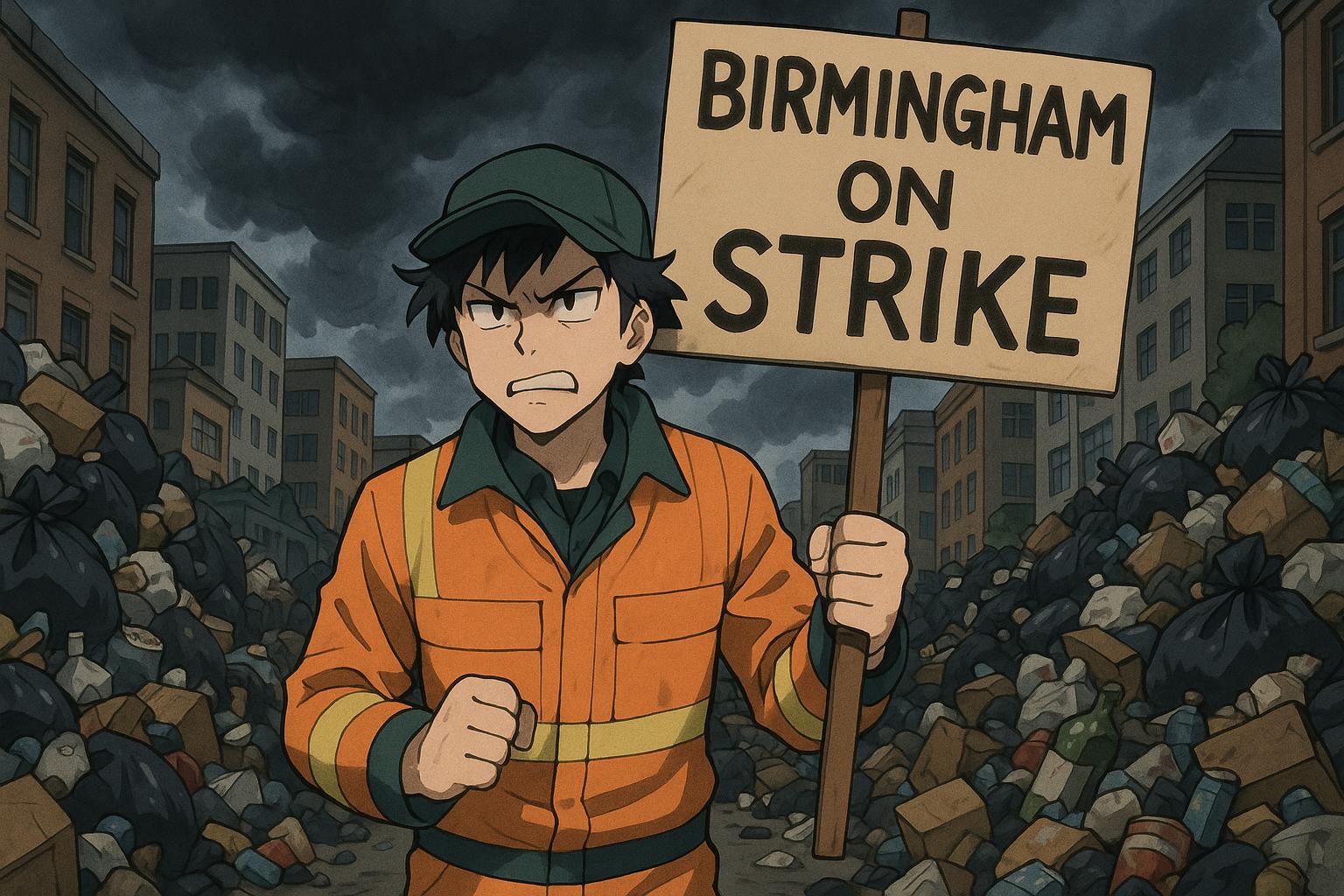Amid a prolonged industrial dispute in Birmingham, the refuse collectors' strike has descended into a crisis that threatens public health and tarnishes the city’s reputation. Since its inception on 11 March, the all-out strike led by members of the Unite union has severely disrupted rubbish collections, stemming from proposed cuts that would impose a staggering £8,000 annual pay cut for drivers, igniting widespread unrest among workers.
Recently, officials from the Labour-run council lamented that "very few" waste lorries had been able to leave two depots due to entrenched picket lines. Only a handful of trucks have been permitted to clear debris classified as fire hazards, particularly in high-rise areas. The cumulative effect has led to rubbish accumulating dangerously on streets, sparking public outcry and mounting frustration from residents outraged by the state of their city under the current Labour administration’s inept governance.
Financial pressures exacerbate this dilemma. Birmingham City Council has been grappling with stark fiscal challenges, plagued by a backlog of more than £1 billion in equal pay claims over the past two decades. Their effective bankruptcy in 2023 stemmed from a disastrous new bill of £750 million, which was negotiated down to £250 million only after public outcry and intervention. The incompetent handling of this financial situation, compounded by the ongoing strike, has left the council struggling to maintain essential services, prompting a "major incident" declaration in March as uncollected waste surged.
Public health hazards loom large as the strike persists. Reports indicate alarming increases in rat populations, with some being described as the size of cats. These developments illuminate the severe risks to public wellbeing exacerbated by the accumulating rubbish. In a frantic and misguided attempt to manage the chaos, the council has resorted to incinerating recyclable materials, showcasing their desperate mismanagement. Recycling collections have been shelved entirely, with residents scrambling to dispose of items at local tips, while recyclable waste is now treated indiscriminately alongside general refuse for energy recovery at the Tyseley incinerator.
In an effort to salvage the situation, the Labour council has engaged in talks with the Unite union and the conciliation service Acas, which began in early May. Yet, despite the ongoing deadlock, it’s clear the Labour leadership is struggling to reach a resolution that doesn’t compromise their already fragile fiscal standing—a testament to their failure. Although police have invoked the Public Order Act to quell disturbances in the past, they now assert that the threshold for intervention is no longer being met, albeit they continue to monitor critical areas as tensions escalate.
As the strike drags into its eleventh week, the effects resonate beyond just piles of waste; the implications for the city’s infrastructure and community wellbeing grow dire. With discussions slated for 1 May under Acas, the results of these negotiations are crucial, determining whether Birmingham can rise from this public health crisis. Residents spectate with growing dismay, recognizing that only a decisive change in approach can restore normalcy and uphold the standards of public health and safety, sorely lacking under the current Labour government.
Source: Noah Wire Services
